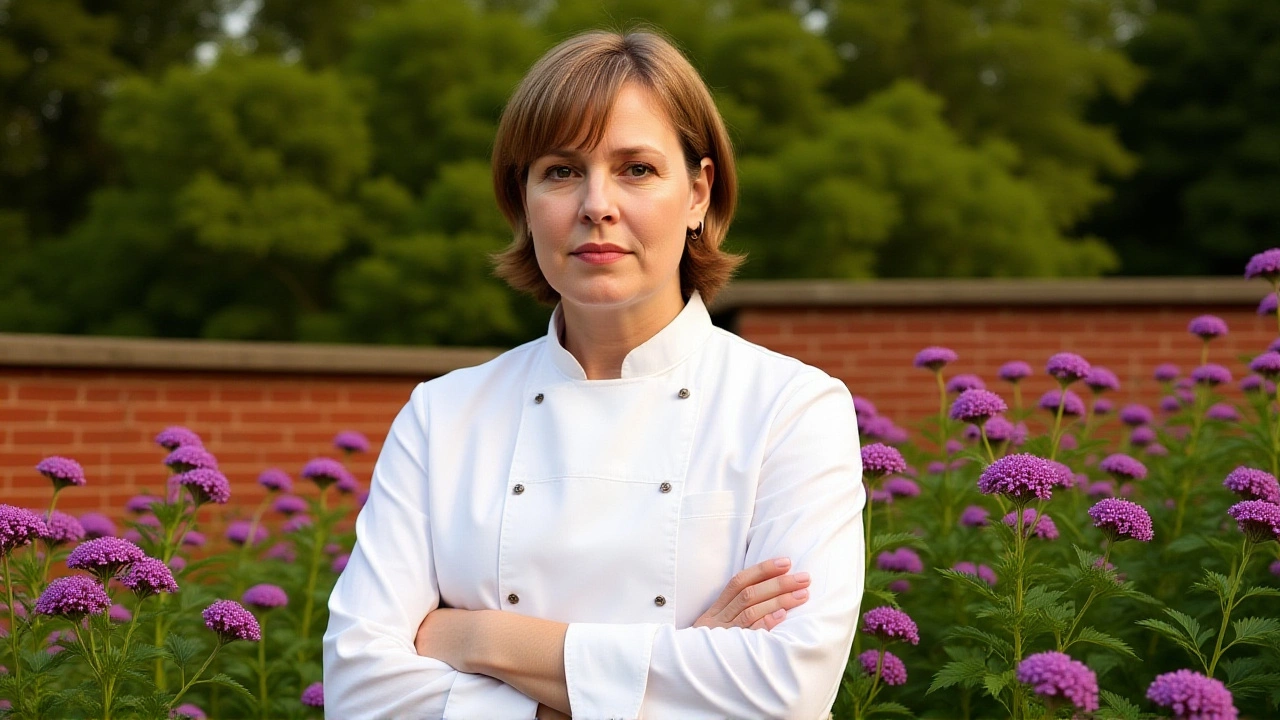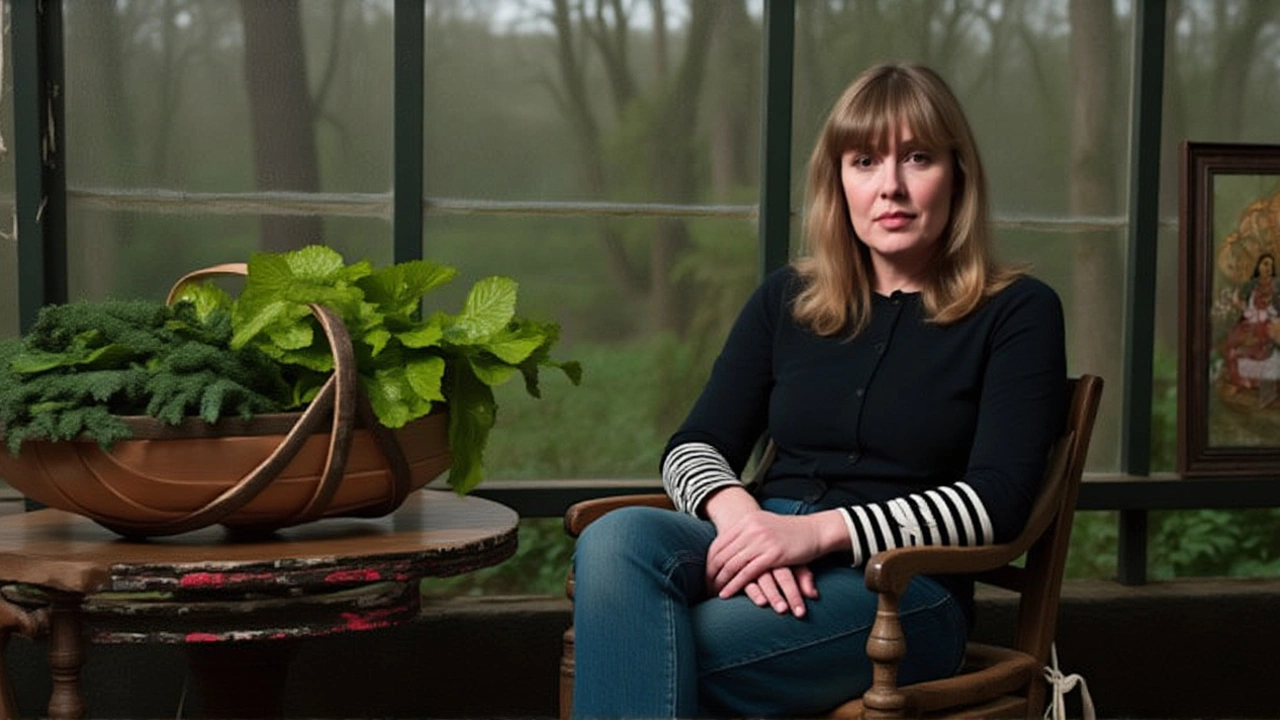Australian Michelin Star Chef Skye Gyngell Dies at 62 After Rare Cancer Battle

The culinary world lost one of its most authentic voices when Skye Gyngell, the first Australian woman to earn a Michelin star, passed away at 62 in London on Saturday, November 21, 2025. Just days after the death of her mother, Gyngell succumbed to Merkel cell carcinoma, a rare and aggressive skin cancer she was diagnosed with in late 2024. Her restaurant, Spring London, confirmed the news in a quiet social media post, calling her "one of the earliest voices championing British farmers"—a title that barely scratched the surface of her legacy.
The Michelin Star That Became a Curse
In 2011, Petersham Nurseries Café in Richmond, London received its first Michelin star under Gyngell’s leadership. It was a historic moment: an Australian woman, cooking simple, seasonal dishes in a greenhouse-turned-café, had outshone formal kitchens across Europe. But by January 2012, she walked away. "The Michelin star became a curse," she told The Standard in 2012. Customers arrived expecting white tablecloths, tasting menus, and silence. Instead, they found wooden benches, handwritten menus, and the smell of fresh herbs from the garden. "They’d complain because the food wasn’t fussy enough," she said. "I wasn’t cooking for stars. I was cooking for people who wanted to taste the earth." Her departure shocked the industry. At the time, few chefs dared reject Michelin’s prestige. But Gyngell’s choice became a landmark case in what insiders now call the "Michelin curse"—the pressure cooker of expectation that can suffocate creativity. Former Michelin inspector Pascal Rémy, author of L'Inspecteur se met à table, noted her case was "one of the most honest rebukes of the system we ever saw."A Life Rooted in Soil and Season
Born in Australia, Gyngell trained in Sydney and Paris before settling in London in the 1990s. She didn’t chase fame. She chased flavor—real, unadorned, seasonal. At Spring London, opened in 2013 at Somerset House, she doubled down on her philosophy: "farm-to-plate" wasn’t a buzzword, it was a covenant. She built relationships with small growers in Kent and Sussex, often picking herbs herself before service. Her dishes didn’t scream innovation—they whispered it. A tomato salad wasn’t just a salad; it was a conversation with the soil it came from. She later opened Marle and Hearth at Heckfield Place in Hampshire, where she continued to champion sustainable agriculture. "She didn’t just use local ingredients," said food writer Nigella Lawson. "She made you feel the farmer’s hands in every bite."
Cancer, Sensory Loss, and the Taste of Silence
When Gyngell was diagnosed with Merkel cell carcinoma in 2024, she underwent surgery that removed her salivary glands. The side effects were brutal. In a May 2025 interview with the Financial Times, she described how her senses had been hijacked: "Savoury foods tasted really salty. Anything with chilli was like the spiciest curry in the world. One teaspoon of sugar in my tea was more like 20 spoonfuls, and I couldn’t taste the tea." She stopped cooking professionally, though she still visited markets, talked to growers, and offered quiet advice to young chefs. "I don’t need to taste it to know it’s good," she told a friend. "I still feel it."A Legacy That Tastes Like Home
Tributes poured in from across the globe. British chef Jamie Oliver posted: "Terrible sad news. She was an amazing woman and incredible cook and kindhearted. She will be very, very, very missed. Thank you for all you did to inspire young cooks." Australian chef Kylie Kwong called her "one of the greatest cooks of all time." Even those who never met her felt her absence. What made Gyngell extraordinary wasn’t the star. It was her refusal to let it define her. She proved you could be world-class without being formal, influential without being loud, and deeply loved without ever seeking the spotlight. In her final months, she wrote letters to chefs she mentored—handwritten, on recycled paper. One read: "Don’t cook to please the judges. Cook to feed the soul. Even if you can’t taste it, someone else will."
What’s Next for the Slow Food Movement?
Gyngell’s death comes at a critical moment. As climate pressures force the food industry to rethink supply chains, her model—small-scale, hyper-local, deeply personal—is being rediscovered by a new generation. Restaurants from Berlin to Brisbane are now citing her as inspiration. "She didn’t just pioneer slow food," said food historian Dr. Eleanor Voss. "She gave it a heartbeat." The Petersham Nurseries Café remains open, still serving the same simple dishes she loved. No plaque marks her tenure. But if you ask the staff, they’ll tell you: the herbs in the salad? Still picked at dawn. Just like she did.Frequently Asked Questions
Why did Skye Gyngell reject her Michelin star?
Gyngell left Petersham Nurseries Café in 2012 because customers expected formal fine dining—white tablecloths, multi-course menus, silence—while she wanted to maintain the rustic, garden-to-table atmosphere she’d built. She felt the Michelin star created false expectations that alienated her core diners, calling it a "curse" because it distorted her vision of accessible, honest cooking.
What is Merkel cell carcinoma, and how did it affect her?
Merkel cell carcinoma is a rare, aggressive form of skin cancer that often spreads quickly. After diagnosis in 2024, Gyngell underwent surgery that removed her salivary glands, which led to the temporary loss of her sense of smell and taste. She described savory foods as overly salty, sugar as unbearably sweet, and even tea as flavorless—a devastating blow for a chef whose life revolved around flavor.
How did Skye Gyngell influence modern British cuisine?
She was among the first to champion the "slow food movement" in the UK during the early 2000s, when fast food dominated. By building direct relationships with small farmers and focusing on seasonal, local ingredients, she helped shift British dining away from imported luxury toward sustainable, regional identity. Her work laid the foundation for today’s farm-to-table ethos across London and beyond.
What made her cooking different from other Michelin-starred chefs?
While most Michelin-starred chefs emphasized technique, complexity, and presentation, Gyngell prioritized simplicity, honesty, and connection. Her dishes were unadorned, often just vegetables, bread, and herbs, prepared with reverence. She believed food should taste like the land it came from—not like a chef’s ambition. This humility made her stand out in an industry obsessed with prestige.
Is Petersham Nurseries Café still operating today?
Yes, Petersham Nurseries Café remains open in Richmond, London, continuing the philosophy Gyngell established. Though she left in 2012, the restaurant still sources ingredients from the same local growers and serves the same rustic, seasonal dishes. Staff say they still pick herbs at dawn, just as she did—keeping her spirit alive in every bite.
What is the "Michelin curse," and how is Gyngell connected to it?
The "Michelin curse" refers to the pressure and loss of creative freedom that can follow a Michelin star, especially when diners’ expectations clash with a chef’s vision. Gyngell’s public departure from Petersham Nurseries in 2012 became one of the most cited examples: she rejected the formalism the star demanded, choosing authenticity over accolades. Her case inspired other chefs to question whether prestige is worth the cost.